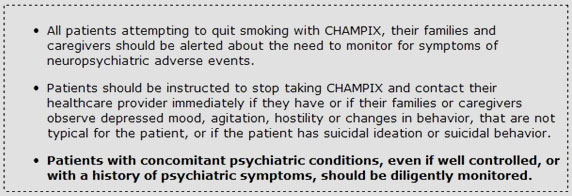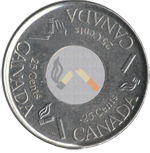HOW TO QUIT – GENERAL ADVICE
Stopping smoking requires motivation and planning. Many people also need medication to assist them.MOTIVATION
Hopefully, as you read this web site, it will be clear to you that it would be a good idea to stop smoking before surgery.
You want to have an uneventful anesthetic, you want to heal well without any infection or other complication, you want to get out of hospital as soon as possible, and you want your operation to be a success. Stopping smoking before surgery, and remaining smoke free afterwards, will help you with all of these goals.
You should also consider the general benefits of stopping smoking, such as living a longer, healthier life. You may want to avoid subjecting your family and friends to second hand smoke. You may need to set a good example to your children, or want to perform better in your sport. You should also think about the money you will save, and what that could pay for.
PLANNING
Exactly how and when will you stop smoking?
Most people need to do more than that. They need to think about why they smoke and what they will do instead. Some people need something to occupy their hands, others need something to put in their mouths. You should consider your friends and family: who will support you, and who will try to lead you astray? Do you need to avoid certain people and some types of events for a while?
Ideally you should try to stop smoking six or even eight weeks before surgery, to allow the maximum amount of time for your lungs to start to heal. You may ask your surgeon if it makes sense to delay your surgery to give you this time. Obviously, if the surgery is urgent, then you do not have the option of waiting and you should stop smoking as soon as possible. Even if you only stop eight hours before the surgery, this will allow the amount of carbon monoxide, one of the poisons in tobacco smoke, to decrease to a safe level.
MEDICATIONS
Many smokers need medications to help them break their smoking habit. Nicotine replacement medication provides a safer source of nicotine, the most addictive chemical in cigarette smoke, and is available in Canada without a prescription. Bupropion and varenicline are two drugs which act in the brain to reduce the pleasurable effects of nicotine. They both require a prescription.
i) NICOTINE REPLACEMENT THERAPY
Cigarette smoking is addictive mainly because it is a way of getting nicotine to the brain, where it releases dopamine, which causes a pleasant sensation. One way to deal with cravings for cigarettes is to supply a low and controlled dose of nicotine by another route. Pharmacies stock a wide range of nicotine replacements, including patches which provide a continuous supply of nicotine, and gum which provides a quicker burst of nicotine. Talk to a pharmacist about what products or combination suits you best. In many provinces, nicotine replacement therapy is not covered by drug plans. Some employers will cover the cost, and there are sometimes temporary programs which help with the cost. Remember that you will be saving money by not buying cigarettes! In hospital, you should be allowed to continue on your nicotine replacement therapy. Some hospitals may provide this treatment while you are an inpatient. One issue is that some anesthesiologists do not want patients to chew gum of any sort for eight hours before surgery, as it increases the amount of acid in the stomach.
ii) BUPROPION (Trade name; Zyban)
This drug is also marketed as an anti-depressant. It doubles the rate of successfully quitting smoking, and makes gaining weight less likely. The usual dose is 150 mg by mouth once day for one week before starting to quit, then double the dose to 150mg twice a day for next seven weeks.
The most serious adverse effect of bupropion is a seizure, which affects an estimated 1 in 1000 users. More common side effects include dry mouth, insomnia, skin rash, pruritus, and hypersensitivity. Rarely the drug may cause a reaction resembling serum sickness.
Contraindications and precautions: Bupropion is contraindicated in patients with current or past epilepsy. It should also be used with extreme caution in patients with conditions predisposing to a low threshold for seizure—history of head trauma, alcohol misuse, diabetes treated with hypoglycaemic agents or insulin—and in patients taking drugs that lower the seizure threshold (for example, theophylline, antipsychotics, antidepressants, and systemic corticosteroids).
Bupropion is also contraindicated in patients with a history of anorexia nervosa and bulimia, severe hepatic necrosis, or bipolar disorder.
iii) VARENICLINE (Trade name Chantix in the USA and Champix in Canada, Europe and other countries)
Varenicline is a partial agonist of the α4β2 subtype of the nicotinic acetylcholine receptor. This means that it works by blocking the ability of nicotine to release dopamine and cause a pleasurable sensation. It therefore makes smoking less pleasurable, and reduces nicotine dependence.
It is the most effective of all the medications used to help people stop smoking. For example, in one study the quit rates at 9-12 weeks were 44.0% with Varenicline, 29.5% with Bupropion and 17.7% with placebo. At 52 weeks the figures were 21.9%, 16.1% and 8.4%. (Gonzales, 2006).
The usual starting dose of varenicline is 0.5 mg once daily for the first three days, then 0.5 mg twice daily for the next four days, then continue on 0.5 mg twice daily or increase to 1 mg twice daily thereafter. Varenicline should be taken with a full glass of water with or without food.
Varenicline is intended to be used in combination with quit-smoking education and counselling. Treatment should start 1 to 2 weeks before the date the person has set to quit smoking (the "quit date") and continue for 12 weeks. For those who succeed in quitting smoking during this time, an additional 12 weeks of treatment may be recommended to reduce the risk that they will start smoking again. People who fail to quit smoking during the first 12-week treatment are encouraged to try again once they have identified and addressed the factors that may have caused them to have trouble quitting.
Varenicline has not been tested in those under 18 years old or pregnant women and therefore is not recommended for use by these groups. Women currently breastfeeding should also avoid this product since varenicline may pass into the breast milk leading to unknown effects on the child.
Common Side Effects: Nausea occurs commonly in people taking varenicline. Other less common side effects include headache, difficulty sleeping, and abnormal dreams. Rare side effects reported by people taking varenicline include change in taste, vomiting, abdominal pain, flatulence, and constipation.
Depression and suicide: The US Food and Drug Administration requires Chantix (varenicline) to carry a black box warning, the agency's strongest safety warning, due to public reports of side effects including depression, suicidal thoughts, and suicidal actions. The Canadian government has issues a similar warning:

Cardiovascular Risks: A review in the Canadian Medical Association Journal found that varenicline increases the risk of serious adverse cardiovascular events. Many groups, including The European Medicines Agency have responded that the slightly increased risk of cardiovascular events associated with varenicline does not outweigh the benefits of the drug in helping people to stop smoking.
ALTERNATIVE AND COMPLEMENTARY MEDICINE
There are many people who advertise acupuncture, hypnotherapy, homeopathy or other methods to help with stopping smoking. There is no scientific evidence that any of these techniques work. If you strongly believe that these types of treatment work for you, then use them as an additional method.
CONCLUSION
There are many ways to stop smoking, and many sources of help and advice, including your family physician, pharmacists and the Smokers’ Helpline at www.smokershelpline.ca This is also available as a toll free number, 1 877 513-5333. The Resources section of this site has additional information.
Stopping smoking is not easy, and most people make several attempts before quitting for good. Each unsuccessful attempt should be looked at not as a failure, but as a temporary success. If you resumed smoking after a few days, you learnt that you could go several days without a cigarette. What made you give in and smoke? How would you avoid that next time?
Good Luck!



